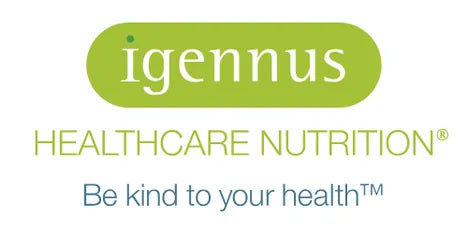It’s coming to the end of the first semester and, by now, we hope that you have settled into student life and have formed some healthy eating habits following our first student article Eating well on a budget. The first part of the student year is often spent meeting new people, becoming familiar with your new home and getting into the swing of things with lectures. There have been a few parties, a lot of drinking, and many memories made. The end of the first semester will have crept up quickly, but will be well earned and a great time to celebrate with new friends before heading home to enjoy the festive period with family and friends. For many of you, however, returning to university after the Christmas break marks the beginning of the exam period – the universities time that well, don’t they? So we want to ensure that you are prepared for the exam period by sharing our knowledge on how to drink responsibly to ensure you have fun, whilst maintaining the ability to revise. We’re not going to tell you that alcohol is the root of all evil, and that you shouldn’t drink over the festive period; in fact, we’re going to inform you of the benefits of drinking alcohol (hurrah), but we do want to ensure that you get through your university years relatively unscathed with a brain full of knowledge, hopefully a little wisdom and a degree you know you have worked hard for.
Today’s lesson: alcohol
To master the art of drinking well, firstly you need to understand the way in which alcohol works. Student halls are filled with information regarding the dangers of drinking, but what does it actually do to the body? The immediate effects of drinking alcohol include the loss of inhibitions, which can feel great after an extremely stressful day of exams or a long week of lectures; however, the more you drink, the more you lose the ability to think rationally – which may lead to risky behaviour. Whilst this can sometimes make for amusing stories, for some it can be a lot more serious. What you don’t see, or feel, from drinking alcohol, is how the body has to deal with the consumption of it.
Everything you consume, from food and drink, to alcohol, including toxins and so on, the body needs to metabolise, i.e. it must undergo various chemical processes that allow the compound to be broken down and prepared for excretion. With food, this process of metabolisation allows energy to be obtained in order for the body to function. With alcohol, you still obtain energy –however, the by-product of alcohol metabolism is the culprit behind the headlines that alcohol is detrimental to health.
When you drink alcohol (also known as ethanol), it enters the digestive tract where metabolisation of alcohol begins. From the gut it enters the bloodstream and then the liver, the main organ responsible for ethanol metabolism. The enzyme alcohol dehydrogenase (ADH) converts ethanol to acetaldehyde, which is highly toxic and damages cells and tissues. Acetaldehyde is then converted to acetate via aldehyde dehydrogenase (ALDH) enzyme. Acetate is then further broken down into water and carbon dioxide, allowing the body to eliminate it easily. Whilst the liver is the main organ responsible for the metabolism of alcohol, the stomach, brain and pancreas also play a role, leaving them vulnerable to the damaging effects of alcohol also (1).
Furthermore, when a large amount of alcohol is consumed, it may be metabolised via a different enzyme known as CYP2E1, which leads to the production of reactive oxygen species (ROS), a tissue damaging molecule that leads to oxidative stress and inflammation, as well as being a known carcinogen. What does all that mean? Well, oxidative stress naturally occurs in the body in response to various situations; the body works to keep this balanced by producing antioxidants such as glutathione, and from the consumption of antioxidant-rich foods in the diet. The generation of additional oxidative stress from alcohol consumption, coupled with the antioxidant-reducing effect of alcohol (1) may lead to an imbalance in the body, with long-term oxidative stress being linked to a variety of health conditions (cancer, arthritis, diabetes, even speeding the ageing process, to name but a few). Inflammation is actually required in the body as part of an immune reaction to injury, and in healthy individuals, the body is able to switch the inflammatory response off when the body no longer needs to heal. When too much inflammation occurs, however, the ability to switch off the inflammatory process can be impeded, leading to silent and chronic inflammation associated with multiple health conditions (depression, irritable bowel disease, psoriasis, chronic fatigue syndrome, fibromyalgia, plus many more). This may appear to be all doom and gloom but, once you understand the way in which alcohol works, you can begin to support your body to optimally metabolise alcohol and therefore reduce the negative impact it may have on your health.
Hydration is key
The effect of alcohol varies greatly depending on many factors. Hydration is important as the blood can quickly become concentrated with alcohol the less hydrated you are, making it essential to ensure you are well hydrated before drinking alcohol, and keep hydration levels topped up between each alcoholic drink. This will reduce blood levels of alcohol and therefore slow down the amount of alcohol that is sent to the liver at any one time so as not to over-burden it. Alcohol is also a diuretic, meaning that drinking alcohol leads to increased urination and loss of essential minerals which aid the hydration of cells in the body. The dehydrating effects of alcohol are believed to be the main reason behind the dreaded hangover, e.g. symptoms of headaches, dizziness, dry skin and feeling tired.
Salt (sodium chloride) and caffeine can further drive dehydration, so you may want to skip the tequila shot, espresso martini or vodka red bull, which will further increase the levels of alcohol in the bloodstream. That cup of coffee and bacon sandwich the next day won’t help either, so after a drinking session, focus on replenishing your body’s stores of electrolytes by consuming sodium, potassium, chloride, calcium and magnesium-rich foods and drinks, the minerals essential to increase hydration levels. You can obtain these from drinking mineral water, coconut water, or eating a banana. Himalayan salt is also rich in minerals and can be added to water to make your own electrolyte solution.
Eating is not cheating!
There is a reason parents like to ensure that you have eaten before you go out partying; they’re not trying to be annoying but aiming to ensure your safety. As the absorption of alcohol starts in the gut, ensuring you have eaten an adequate meal will slow down blood levels of alcohol, and the rate at which alcohol is sent to the liver for detoxification, again, reducing its burden and reducing the amount of highly toxic acetaldehyde the body is exposed to at any one time (2). Carbohydrates are the quickest food source to be digested, followed by protein and then fat. Ergo, eating a meal rich in protein and fat, with some added complex carbohydrates (which are slower to digest) from fibre-rich food sources (e.g. lentils, peas, beans, broccoli, sweet potato, brown rice or whole grain bread), will help slow down the rate at which ethanol enters the bloodstream and the liver. You can obtain protein from meat, fish, tofu, lentils and legumes, and healthy fat from oily fish (mackerel, salmon, anchovies, and herring), avocado, olive oil, nuts and seeds. This will explain why you will feel less of the negative side effects of drinking alcohol when you consume it over a meal with friends rather than on an empty stomach.
As the side effects of drinking alcohol include oxidative stress and inflammation, a diet rich in antioxidants and anti-inflammatory foods such as delicious berries, juicy and colourful fruits, nuts and seeds, dark green leafy vegetables, kidney beans and dark chocolate with a high cocoa content, or even better, raw cacao powder, may help support the body from the negative side effects of alcohol. Try a smoothie bowl rich in fruit and seeds for breakfast the next day (with some protein powder added to the smoothie). You could even sprinkle some cacao nibs over the top for some additional antioxidants and add your favourite nuts. If you’re more of a savoury person, try baked eggs with wilted spinach and salmon for a breakfast that is antioxidant-rich, anti-inflammatory and delicious.
Alcohol can also reduce blood glucose levels which are required to be at an optimal level to support energy production for the body. If you experience symptoms of feeling tired, dizzy, shaky, becoming irritable and sweating when you drink alcohol, this could be a side effect of having reduced blood glucose levels and you should speak to your GP to rule out diabetes.
It’s all in the genes
Ever wonder why your best friend seems to be able to drink the same amount as you and yet you are more negatively affected the following day? You can thank your parents for that as genes play a huge role in the body’s ability to metabolise alcohol effectively. Some people are more effective at converting ethanol to acetaldehyde than others, whilst some are more effective at converting acetaldehyde to acetate, or doing both, effectively. The most favourable gene composition enables slow conversion from ethanol to acetaldehyde, and fast conversion of acetaldehyde to acetate, meaning the body has reduced exposure to highly toxic acetaldehyde. However, some people are fast at the first stage and slow at the second stage, meaning the body has prolonged exposure to acetaldehyde. Experiencing facial flushing, nausea and a rapid heart beat are all signs of high levels of acetaldehyde in the body when drinking (3). Whilst you can’t do much about your genetic make-up, you can support the body by ensuring you are hydrated and have eaten properly to reduce the speed at which ethanol is converted to acetaldehyde. Also, learn to listen to your body; when you are aware of the signs to look out for, you can start to put together an idea of how your body is coping (or not) with alcohol.
Alcohol and mental health
The university years can be an extremely difficult time for some, with many experiencing feelings of low mood, possibly due to being in a completely new environment, away from family and friends. If you feel like you are experiencing low mood on a regular basis, consider speaking to someone about how you feel, such as a family member, a friend, or a professional such as your GP. As alcohol is considered a depressant, whilst one drink may initially provide a positive experience, it won’t help lift your mood and is therefore not recommended. Most student unions offer student counselling services so speak to them about receiving a referral to receive appropriate help and support.
Alcohol has also been shown to increase the body’s levels of cortisol (4), the body’s stress hormone, with high cortisol levels being linked to anxiety and long-term high levels associated with fatigue, as the body is not capable of being in ‘overdrive’ for a long period of time. Therefore, if you do feel stressed, try to tackle the source of your stress head on, rather than drinking to avoid them, as your cortisol levels may already be elevated. You can also adopt some relaxation techniques, such as exercise and meditation, which can help to reduce cortisol levels.
As university is considered a time to learn about yourself, start looking at how you deal with different situations, listen to your body and look for and act on signs of when it is in need of rest, relaxation, socialising, or a trip home to see the family rather than learning to tackle (avoid) your problems by drinking alcohol.
The benefits of alcohol
It is true, it’s not all bad news when it comes to drinking alcohol, and there are health benefits associated with moderate drinking, with light to moderate consumption of alcohol being linked to a lower risk of mortality when used in the ways described above. The Mediterranean diet, considered one of the healthiest, is rich in vegetables, legumes, nuts, meat and fish, healthy fats such as olive oil and, of course, the occasional glass of wine. Whilst alcohol can have many negative side effects, wine contains many antioxidants (including resveratrol), which may have a neuro-protective effect (it can protect the brain from oxidation) (5). Furthermore, resveratrol acts as both an anti-inflammatory and antioxidant compound, and is believed to have a protective role for the cardiovascular system (6). The benefits associated with the Mediterranean diet, however, are believed to be multi-factorial, and a glass of good quality red wine may very well have a beneficial effect as long as it is consumed with a meal, and an overall nutritious and well-balanced diet.
Final tips
- Studies have suggested that drinking alcohol may have a negative effect on academic performance so ensure you support your body with the healthy habits outlined above, i.e. drinking a glass of mineral water between each drink, not drinking on an empty stomach, and eating a nutritious diet full of minerals, antioxidants and essential fatty acids which will support the body through the healthy detoxification of alcohol.
- With the loss of inhibitions, accidents and injuries do occasionally occur when under the influence of alcohol, so ensure your own and your friends’ safety by keeping together and leaving together. Always ensure you know of each other’s whereabouts and check on each other to ascertain you are all home safe and sound.
- As there are genetic variations in alcohol detoxification and its subsequent side effects, perhaps the college buddy who doesn’t want another shot, or wants a night off the boozing isn’t being such a loser after all, so respect your friend’s choice when they pass on a drink. Similarly, if you feel that you don’t want to drink, speak to your friends about your choice to abstain and ask them to respect it. If you feel that you are drinking more because of social pressure, your student years are the perfect time to experiment, try new hobbies and sports, join groups and meet new people who may be more like-minded.
- The UK Chief Medical Officers advise a maximum of 14 units per week but you may be surprised to find that those couple of pints on a few different days of the week can quickly add up and exceed the limit. Drinkaware offers a great app to monitor your intake and allows you to set goals such as having non-drinking days, not consuming more than a set amount of units in one sitting, and not consuming more than 14 units per week.
- Finally, long-term consumption of alcohol has been shown to deplete the body’s levels of vitamins A, C, D, E, folate, and thiamine (4). You can support your body with a good quality multivitamin such as Pure Essentials Avanced Multivitamin & Mineral which contains all of the post-drink depleted vitamins, essential for supporting the immune system.
Summary
Hopefully, this article has educated you on both the good and the bad sides of alcohol. Whilst drinking is a big part of student culture, with some immediate rewarding side effects, the long-term side effects of drinking alcohol cannot be seen, and usually do not cause problems until later on in life. By becoming more aware of the reasons why you feel a particular way both during and after drinking, you can start to put together healthy practices to better support your body. Enjoy the festive period and good luck in those upcoming exams!
References
- Zahkari, S. (2006). ‘Overview: How Is Alcohol Metabolized by the Body?’, Alcohol research and health, 29 (4), pp. 245-254.
- Cederbaum, A. (2012). ‘Alcohol metabolism’, Clinical liver disease, 16 (4), pp. 667-685.
- S. Department of health and human services, (2007). ‘Alcohol metabolism: an update’, Alcohol alert, 72, pp. 1-6.
- Barr, T., Helms, C., Grant, K., et al. (2017). ‘Opposing Effects of Alcohol on the Immune System’, Progress in Neuro-Psychopharmacology & Biological Psychiatry, 65, pp. 242-251.
- Markoski, M., Garavaglia, J., Oliveira, A. et al. (2016). ‘Molecular Properties of Red Wine Compounds and Cardiometabolic Benefits’, Nutrition and Metabolic Insights, 9, pp. 51-57.
- KuršvietienėaInga, L., Stanevičienėab, I., Mongirdienė, A., et al. (2016). ‘Multiplicity of effects and health benefits of resveratrol’, Medicina, 52 (3), pp. 148-155.








